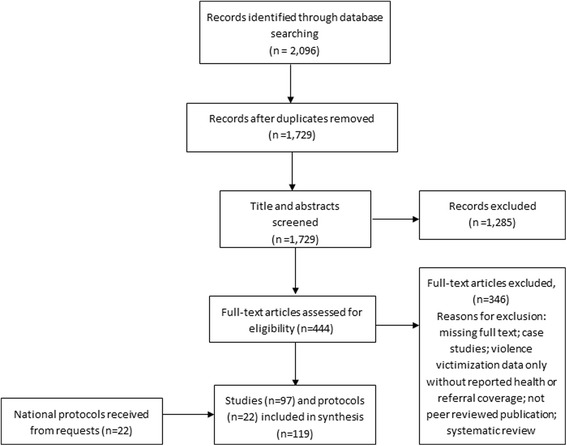BACKGROUNDViolence against children (VAC) stays a world downside. The health sector has a chance and duty to be half of the multi-sector collaboration to forestall and reply to VAC.
This review aimed to evaluate the health sector’s response to VAC amongst Latin American & Caribbean (LAC) nations, notably because it pertains to bodily violence, sexual violence, and neglect.METHODSNational protocols for the identification and provision of health care to youngster survivors of violence, abuse and neglect have been solicited in partnership with UNICEF and PAHO/WHO nation workplaces inside the LAC area.
A parallel systematic review was undertaken in January 2015 to review research revealed in the final 10 years that describe the regional health sector response to VAC.
RESULTSWe obtained health sectors pointers/protocols associated to VAC from 22 of 43 (51 %) nations and reviewed 97 revealed articles/reviews that met the review inclusion standards. Country protocols have been offered in Spanish (n = 12), Portuguese (n = 1), and English (n = 9). Thematic areas of nation protocols included:
1) figuring out indicators and signs of VAC,
2) offering patient-centered care to the sufferer, and
3) fast remedy of accidents associated to VAC.
The systematic review revealed that health professionals are sometimes unaware of national protocols and lack coaching, sources, and assist to reply to instances of VAC. Further, there may be restricted coordination between health and social safety providers.CONCLUSIONSVAC stays a world, public health precedence.
Health professionals are well-positioned to establish, deal with and refer instances of VAC to applicable establishments and community-based companions. However, poor protocol dissemination and coaching, restricted infrastructure, and insufficient human sources problem adherence to VAC pointers.

Human sources: the Cinderella of health sector reform in Latin America.
Human sources are a very powerful property of any health system, and health workforce issues have for many years restricted the effectivity and high quality of Latin America health methods.
World Bank-led reforms geared toward rising fairness, effectivity, high quality of care and consumer satisfaction didn’t try and resolve the human sources issues that had been recognized in a number of health sector assessments. However, the 2 most necessary reform insurance policies – decentralization and privatization – have had a damaging influence on the circumstances of employment and prompted opposition from organized professionals and unions.
In a number of nations of the area, the workforce grew to become a very powerful impediment to profitable reform.This article is predicated on fieldwork and a review of the literature.
It discusses the explanations that led health staff to oppose reform; the institutional and authorized constraints to implementing reform as initially designed; the mismatch between the kinds of personnel wanted for reform and the supply of professionals; the deficiencies of the reform implementation course of; and the regulatory weaknesses of the area.
The dialogue presents workforce methods that the reforms may have included to realize the meant objectives, and the necessity to keep in mind the values and political realities of the nations. The authors recommend that autochthonous options usually tend to succeed than options imported from the skin.